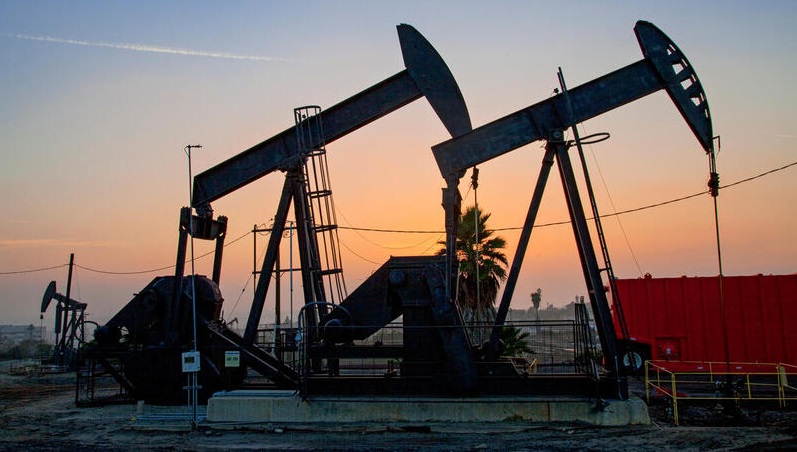Governments will continue to discuss whether to call for a phase-out of fossil fuels ahead of the Cop28 climate talks, the Egyptian Cop27 president told reporters after a gathering of 50 climate ministers in Copenhagen today.
Egypt’s foreign minister Sameh Shoukry said that there will be “consultations and deliberations” on whether to call for a phase-out of fossil fuels when governments gather in the United Arab Emirates (UAE) in November. The issue bitterly divided governments at the Cop27 climate talks he chaired last November.
Standing next to him, Denmark’s climate minister Dan Jorgensen added: “There’s no doubt that it will be part of the discussion moving forward towards Cop28”. But, he added, “whether or not we will reach that result in Dubai later this year is of course difficult to say”.
Shoukry said there was “a general recognition of the importance of reducing the reliance on fossil fuels and being able to transition towards renewable energy, clean energy.” He added: “This has to be taken in perspective of what constitutes a just transition”.
Fossil phase-out
At Cop27, an alliance of more than 80 countries wanted the countries’ joint declaration to call for a phase-out of fossil fuels. That would have expanded and strengthened the agreement to phase down coal made at Cop26 the previous year.
Two days of discussions on the #ClimateAction and the path to #COP28 have concluded in Copenhagen.
Watch the #CopenhagenClimateMinisterial press conference here https://t.co/6k7626nLCw
— Klimaministeriet (@KlimaMin) March 21, 2023
But these agreements have to be signed off by every country and a small group of fossil fuel-producing states like Saudi Arabia, Iran and Russia opposed the motion. The Egyptian chairs did not include it in the final text, angering blocs like the European Union which reluctantly accepted it.
Controversy over hosts
Some climate campaigners fear that the UAE, which receives half of its revenue from fossil fuels, will try to stop governments from getting fossil fuel phase-out into the Cop28 agreement. The UAE’s decision to appoint Sultan Al-Jaber, the head of their national oil company, as Cop28 president further fanned these fears.
But in February, the UAE’s environment minister told a conference “we need to…phase out oil and gas”. In Copenhagen both Shoukry and Jorgensen defended the ability of an oil-producing state to chair a Cop meeting effectively.
Shoukry said the UAE’s oil production “does not in any way detract” and “there are areas that can be a benefit to the process by highlighting the scaling down of dependency on fossil fuels and the efforts that have been taken in that regard”.
He pointed out that Cop26 had been hosted the UK, an oil-producing country, and called for a focus on “the climate crisis, rather than on peripheral issues that don’t really have an impact on the process itself”.
Part of the solution
Jorgensen said that, to limit global warming to 1.5C, “we need all countries on the planet to contribute and we definitely need oil-producing countries to be a part of the solution”.
Commenting on Al-Jaber, who he and Shoukry met privately this week, Jorgensen said “he’s made it very clear that he will applaud the day that the last barrel of oil is sold”.
This is a reference to Al-Jaber echoing comments made by his president Mohammed bin Zayed, who said in 2015 that “if we make the right investments today, there will come a time when the UAE would celebrate the last barrel of oil”.
